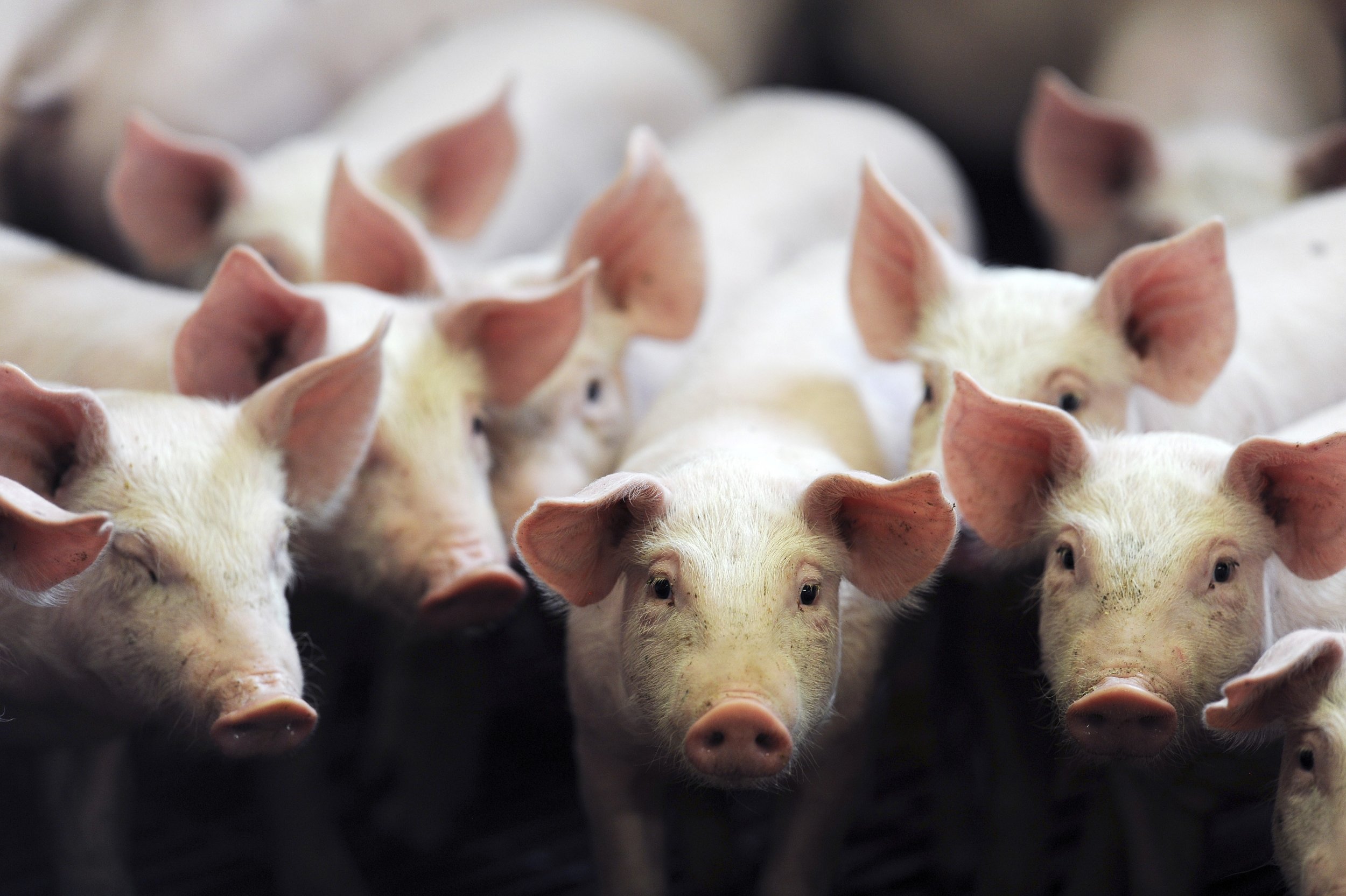
Genetically altered pigs are being bred on a farm in Cambodia, and their enormous size and hulking muscles are raising alarm. The shocking sight of these "double-muscle" pigs—with enlarged buttocks and generally outsize physique—have stirred outrage, particularly because video footage of the animals appears to show them walking abnormally.
Although it's true that pigs can be much larger than many people think, weighing about 260 pounds by the time they go to slaughter, even American-grown Yorkshire pigs are no match for the Duroc Cambodia porkers.
Sightings of these pigs are raising many questions and Newsweek sought to answer a few.
How are they bred?
While PETA has claimed that these pigs are genetically altered, we don't know that for sure. They could simply be bred to be buff; we can see from the pictures on the farm's Facebook page that there is a spectrum of beefiness among them, and that lack of uniformity means genetic alteration is not at play.
We do know that in 2015 scientists at Seoul National University in Korea genetically modified pigs to have double-muscles. Researchers hoped to produce pigs that had more and leaner meat on them, and the Journal of Animal Breeding and Genetics published a study saying that altering the myostatin gene can "increase selling profits for animal producers." The pigs in Cambodia could be of the same lineage or technique.
This particular gene disruption is relatively minor. The myostatin gene typically regulates muscle production. Without this gene keeping muscle tissue in check, animals will reach Hulk-like proportions.
Are people eating these?
While the Food and Drug Administration has determined that GMO AquAdvantage salmon are as safe to eat as any other salmon, no other genetically modified animal has been approved for consumption. Wired notes that several genetically modified animals may be sold as meat "in no time," but if anyone is currently selling pork from GMO pigs or their offspring, it's illegal.
Has anything like this happened before?
The Belgian Blue Cattle also have mutations in their myostatin, which took decades of crossbreeding to achieve. (You may have seen viral images of these "supercows," but not all members of the breed are quite as extreme, or as exaggerated by clever haircuts, as the ones in the images.)
Other pigs have been genetically engineered for meat production as well. The "EnviroPig" is a trademarked, genetically modified type of Yorkshire Pig that produces manure that is lower in phosphorus than other pigs' manure, ever-so-slightly alleviating the strain that pigs have on the environment. In 2002, Japanese scientists created a pig with spinach genes that contains less fat than a typical pig.
While these pigs sound like boons to meat production, let us not forget the Beltsville pigs. In the 1980s, scientists in Beltsville, Maryland, added human growth hormone genes to pig embryos. Because they were bred with genes from another species, these pigs were "transgenic," unlike the "cisgenic" Hulk pigs, which had their own genes altered.
Nineteen Beltsville pigs were born. Two were stillborn, four died as babies, and although some grew faster than usual, 11 more died before reaching one year of age. They suffered lameness, arthritis, skin and eye problems, and died of stress, peptic ulcers, pericarditis, and pneumonia.
Before animals like the myostatin-disrupted GMO pigs reach the market, more research is due. The pigs must be proven not to be significantly worse for human health, the environment, or animal welfare than regular pigs—and they have to taste good, too.
Uncommon Knowledge
Newsweek is committed to challenging conventional wisdom and finding connections in the search for common ground.
Newsweek is committed to challenging conventional wisdom and finding connections in the search for common ground.
About the writer
Kristin is a science journalist in New York who has lived in DC, Boston, LA, and the SF Bay Area. ... Read more
To read how Newsweek uses AI as a newsroom tool, Click here.








